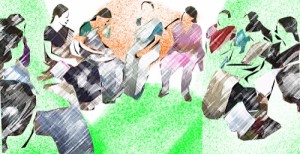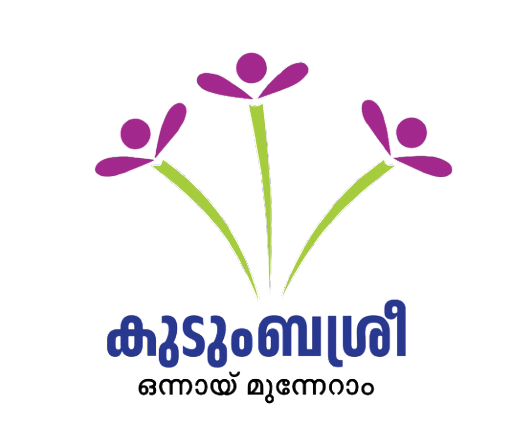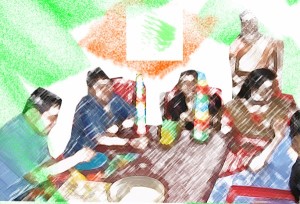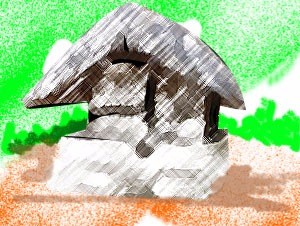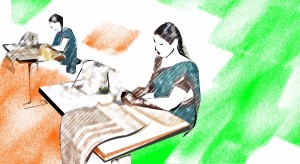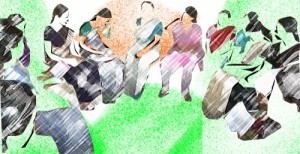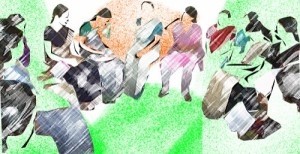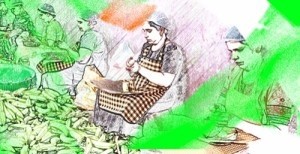Organization Strengthening
Kudumbashree has a huge, distinctive CBO network. To attain the annual targets and goals set by Mission in a time bound manner, every member of the community network system has to be sensitized about Kudumbashree Programmes. Kudumbashree is also engaged in the implementation of various poverty eradication programmes and of socio-economic, developmental programmes of LSGs and Government departments through the community network. It is therefore necessary to augment and improve the skills and knowledge of Kudumbashree net work leaders, office bearers, elected representatives, entrepreneurs, line department officials, resource persons etc for a better social engineering and development process. In order to attain 100% Social inclusion, peoples belonging to weaker sectors such as SC-ST, Coastal area, Elderly, differently abled are to be included in the Kudumbashree network.
Agriculture & Animal Husbandry

Kudumbashree since its inception along with Community Mobilization and Capacity Building has promoted Micro Enterprises as Income Generation Activity for its members. Animal Husbandry projects of Goat rearing and Cow rearing were implemented initially along with Lease Land Farming initiatives. Taking into consideration market needs, Samagra Animal Husbandry projects namely Goat Village, Ksheerasagaram and Nature Fresh Milk were later implemented which eventually transformed into Farmer's Producer Companies in Kannur Idukki and Wayanad. From 2014 onwards, 5 Samagra Animal Husbandry Projects namely Goat Village, KsheeraSagaram, Male Buffalo calf Rearing and allied projects to cater the demand for meat animals, Backyard Egger Poultry rearing project and Duck rearing project has been sanctioned with 35% project cost as subsidy, to the beneficiaries with community level support systems of Micro Enterprise Consultants and "PashuSakhi" to help the women members in skill training, credit linkage, convergence and marketing. Kudumbashree believes that to cater the ever increasing demand of milk, meat and egg in our state, "Production by Masses “ is the best option.
Collectives and Producer Companies
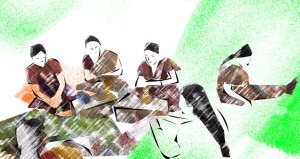
Kudumbashree was working to strengthen the livelihood and economic empowerment of women since Inception. Economic empowerment and poverty alleviation are crucial for the empowerment of Women. In order to help women in its network to increase income, Kudumbashree has focused on Micro Enterprises. Later in 2007 the concept of Samagra was introduced with the objective of achieving scale in enterprise activities, bringing more technical facilitation based on local resources, convergence of funds and functions, more women are oriented towards taking up these value chain projects. Similar enterprises have similar needs and similar problems. In 2011 the micro enterprises are encouraged to form Consortiums under Charitable Societies Act. At this juncture Nutrimix, IT, and Cashew entrepreneurs formed collectives in the form of Societies. The concept of Collective was introduced in order to bring more attention to formation of collective and bringing sustainability to the enterprises. The approach under collectives is to capacitate the entrepreneurs to take up sustainable livelihoods under their leadership. Members in Farm activities are encouraged to form Producer Companies and Enterprises in Nonfarm sector are facilitated to form Consortiums.
Attappady Special Project
Exclusive Adivasi Women’s Collectives for Regenerating Agriculture for Food and Nutritional Security, Economic Sustainability and Self-Reliance. The project aims to uplift the social and economic status of Irula, Muduga and Kurumba tribal communities of Attappady. Sustainable livelihoods like agriculture and allied activities need to be developed where the community can be self-reliant and self sufficient in food. Women’s institutions would be built up for total financial inclusion leading towards poverty alleviation and social development. Awareness generation would be enhanced on all issues for the communities to be able to access all entitlements and schemes. The institutions would enable women to access credit, engage in sustainable livelihoods, build up entrepreneurship, marketing and negotiation capacities and capacity to assert their agency in all realms from the domestic front to the various forums like the area of work, Panchayat and various departments.
Micro Enterprises and Marketing
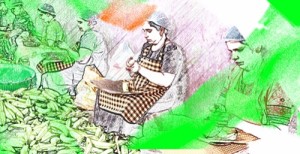
Micro Enterprise promotion and development is an important strategy of Kudumbashree Mission to facilitate economic empowerment of the poor. Kudumbashree Mission promotes individual and group enterprises through the RME and Yuvasree enterprise schemes. The Mission developed specific strategies analyzing the requirements of enterprises. This constitutes trainings, financial support and marketing support to the enterprises and the support is extended to the existing micro enterprises and new ones. An overview of support provided by the Mission and the achievements made is beneficial to understand the strategies proposed for micro enterprises promotion. The Mission focused on the concept of Local Economic Development (LED) – local production, catering to local consumption to increase the economic activity within the local areas for micro enterprise development. For this the Kudumbashree Mission the involvement of the community and LSGs has been brought in to analyze the market demand and the development of products and services accordingly.
Animal Husbandry & Agriculture

Kudumbashree since its inception along with Community Mobilization and Capacity Building has promoted Micro Enterprises as Income Generation Activity for its members. Animal Husbandry projects of Goat rearing and Cow rearing were implemented initially along with Lease Land Farming initiatives. Taking into consideration market needs, Samagra Animal Husbandry projects namely Goat Village, Ksheerasagaram and Nature Fresh Milk were later implemented which eventually transformed into Farmer's Producer Companies in Kannur Idukki and Wayanad. From 2014 onwards, 5 Samagra Animal Husbandry Projects namely Goat Village, KsheeraSagaram, Male Buffalo calf Rearing and allied projects to cater the demand for meat animals, Backyard Egger Poultry rearing project and Duck rearing project has been sanctioned with 35% project cost as subsidy, to the beneficiaries with community level support systems of Micro Enterprise Consultants and "PashuSakhi" to help the women members in skill training, credit linkage, convergence and marketing. Kudumbashree believes that to cater the ever increasing demand of milk, meat and egg in our state, "Production by Masses “ is the best option.
PR-Kudumbashree Constructions
Kudumbashree Constructions
Monitoring and Evaluation
Monitoring and Evaluation
